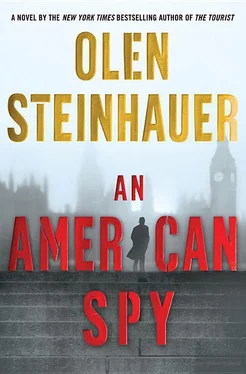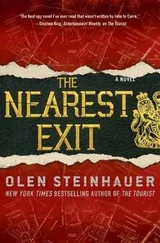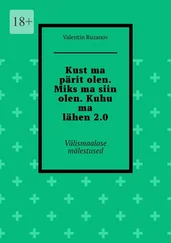Olen Steinhauer - An American spy
Здесь есть возможность читать онлайн «Olen Steinhauer - An American spy» весь текст электронной книги совершенно бесплатно (целиком полную версию без сокращений). В некоторых случаях можно слушать аудио, скачать через торрент в формате fb2 и присутствует краткое содержание. Жанр: Шпионский детектив, на английском языке. Описание произведения, (предисловие) а так же отзывы посетителей доступны на портале библиотеки ЛибКат.
- Название:An American spy
- Автор:
- Жанр:
- Год:неизвестен
- ISBN:нет данных
- Рейтинг книги:3 / 5. Голосов: 1
-
Избранное:Добавить в избранное
- Отзывы:
-
Ваша оценка:
- 60
- 1
- 2
- 3
- 4
- 5
An American spy: краткое содержание, описание и аннотация
Предлагаем к чтению аннотацию, описание, краткое содержание или предисловие (зависит от того, что написал сам автор книги «An American spy»). Если вы не нашли необходимую информацию о книге — напишите в комментариях, мы постараемся отыскать её.
An American spy — читать онлайн бесплатно полную книгу (весь текст) целиком
Ниже представлен текст книги, разбитый по страницам. Система сохранения места последней прочитанной страницы, позволяет с удобством читать онлайн бесплатно книгу «An American spy», без необходимости каждый раз заново искать на чём Вы остановились. Поставьте закладку, и сможете в любой момент перейти на страницу, на которой закончили чтение.
Интервал:
Закладка:
“I would like to think that my long service to the Party would justify a measure of faith.”
Sun Bingjun set down his cup. “I would ask a question of Wu Liang, if I might.”
Wu Liang nodded.
“Why,” he asked, shifting in his chair, “do we hear about this now? The suicide of Bo Gaoli occurred nearly four weeks ago. If Xin Zhu is such a danger, then why have you left him a month to spread his plague?”
Zhang Guo smiled into his fist; Feng Yi raised his head, saying, “That’s a good question.”
Wu Liang lost none of his poise. Again, he sighed. “For the reason Xin Zhu brings up: his long service to the Party and the People’s Republic. Though I was angry-though I suspected deceit in order to attack a rival organization, or perhaps to attack me personally-I wasn’t about to institute disciplinary action until I could prove that Xin Zhu’s accusations were false. That only occurred when we discovered the presence of the aforementioned Tourist, this Leticia Jones, on Chinese soil.”
“I don’t follow,” Sun Bingjun said patiently.
“It’s very simple, comrade, and at this point I would like to ask Xin Zhu a simple question, a question that we could only pose at this point in time.”
Zhu looked at him.
Stone-faced, Wu Liang said, “If the CIA has a source within the Ministry of Public Security, then why would it send someone here to find out your wife’s daily schedule?”
Zhu knew that the question was not finished.
“Why would they risk sending one of their own people-which, we agree, is a great risk to them-if they owned one of us? Your wife’s schedule is not classified information. It’s something that anyone within the ministry could find out with a simple phone call. If they have, as you contend, a source within the ministry, then getting one of their own people to ask questions in the middle of Beijing is not only stupid, it’s incredibly redundant.”
Zhu bit the inside of his mouth to stifle a nervous smile. The logic was beautiful, more so because he could not point out its one flaw: Mary Caul, the consular officer who had convinced Dongfan Beisan to pose his questions, left the country before she could hope to get any answers. She had never cared about the answers. Of course, to bring this up would be admitting that he had already lied about what he knew. So he said, “I don’t know, comrade. However, I remain convinced that the Americans do own someone within the ministry, based on the evidence I submitted.”
“What I think,” said Wu Liang, “is that you are tenacious to a fault. You’ve embarked on a mission to smear the ministry with lies, and now that you’ve been caught with the lies in your hand you’re pretending your hands are empty. I’m angry about this, but more than that I’m disappointed that someone with such a history of socialist endeavor would sink so low. When Hu Jintao talks of the Eight Virtues and Shames, he reminds us to be united, help each other; make no gains at others’ expense. Xin Zhu, I fear, has ignored that one with all the greed and ambition of a Hong Kong stock trader, and we should seriously consider bringing his dismissal to the entire committee for a vote.”
Noticing how wet his palms were, Zhu couldn’t help but admire the mouth on Wu Liang. Perhaps to remind himself of the insignificance of what was happening in this room, he thought, Fifty thousand dead. What could stand up to that?
He thought, This, and you, mean nothing.
5
Two hours later, along a tree-lined residential street north of the Haidian Theater, Shen An-ling opened the door for him, and he climbed out of the car. They’d both been silent during the ride, because Shen An-ling had left his car with the guards at the Great Hall, and there was no telling if someone had slipped a microphone into the cushions. This, Zhu now thought, is getting ridiculous.
The first barrier to their offices was an unassuming door behind which an old woman smoked at a foldout table, looking like a bathroom attendant. While in front of her lay a newpaper with more Sichuan headlines and an open Sudoku puzzle book, just under the table were an intercom, a cell phone, and a Type 77B pistol that was kept loaded with nine hollow-point rounds. He’d had to work to track one down, as the gun was made only for export, and his requisitions had gone unanswered; in the end, He Qiang stumbled across one in South Korea. Now, the old woman put out her cigarette and smiled, her face full of involuntary winks, and took out the intercom, saying, “Seven and eighty-eight here.”
From inside, two guards unlocked and opened the next door, a heavy steel affair that had been carefully painted to look rusty. In their white room, they manned an X-ray machine and a metal detector, both of which Zhu and Shen An-ling sidestepped. Finally, another guard opened the last door, which brought them to a long, semiunderground office gridded with desks and desktop computers, Ethernet cables winding like lifelines up narrow columns to the suspended ceiling panels. Seated at the desks were the twenty-six clerks of his department, sorting through the news events of the day, through agent reports and intercepted communications sent from the Fourth and Seventh Bureaus. Zhu’s department, officially called the Expedition Agency (unofficially referred to as Xin Zhu’s Pit), was an outpost of the Sixth Bureau that had over the years gradually expanded its mission to overlap at least four different bureaus of the Guoanbu. Like the Second, it recruited foreign agents; like the Seventh, it prepared policy reports based on gathered intelligence; like the Foreign Affairs Bureau, it developed relationships with certain foreign intelligence agencies. And as part of the Sixth Bureau, it kept an eye on foreign activity aimed at undermining the stability of the People’s Republic.
This expansion had been gradual and purposefully quiet, and by the time it had been noticed in 2002 by none other than Wu Liang, Zhu had produced too many critical reports to be considered expendable. This had not been Wu Liang’s first attempt to undermine Zhu’s rise in power using the Supervision and Liaison Committee, but it had been the most explosive, bringing members of all the Guoanbu’s bureaus into a fistfight that was only quelled by the intervention of the head of the Political and Legislative Affairs Committee, who held both men up for reprimands.
Since 2002, Zhu had doubled his staff and trebled his field agents, and until the massacre of the Tourists, he had felt nearly invincible.
“We’re dead,” Shen An-ling said once they were inside his office at the far end of the floor. “Wu Liang has been building up to this for a long time.”
“Nothing’s done yet,” Zhu told him, lighting a Hamlet as he settled behind his desk.
It was true. Sun Bingjun had refused to settle on a course of action, and Feng Yi had agreed. Zhang Guo, disappointingly, had remained neutral during the discussion, which was perhaps an attempt to position himself as the crucial vote, or a way of hiding his association with Zhu. So within this microcosm of five committee members, there was a perfect balance of indecision, which led to Feng Yi suggesting that Zhu be given some time to present his rebuttal to the charges. “Five days” had been Wu Liang’s immediate suggestion. Sun Bingjun, proving once again that rumors of his alcoholic decline were greatly exaggerated, had laughed at this.
“Give Xin Zhu a chance, however small.”
“We only have two weeks,” said Shen An-ling, dropping into a chair. “Two weeks to chase our tails. We’ve lost our best American source, and whatever intelligence the Ministry of Public Security has isn’t going to make it to us. We’re fucked.”
Zhu smoked and gazed past him at the blinds, through which his employees worked away at their haystacks of facts and half-truths and lies. He didn’t even react to Shen An-ling’s atypical cursing, for it only showed that the younger man saw the situation for what it was: a disaster. Not only were they stuck with two weeks, at Wu Liang’s insistence they’d been saddled with daily progress reports to those five committee members. Yes, it was a disaster, but there was no time for emotional nonsense. He would give Shen An-ling another five minutes to compose himself.
Читать дальшеИнтервал:
Закладка:
Похожие книги на «An American spy»
Представляем Вашему вниманию похожие книги на «An American spy» списком для выбора. Мы отобрали схожую по названию и смыслу литературу в надежде предоставить читателям больше вариантов отыскать новые, интересные, ещё непрочитанные произведения.
Обсуждение, отзывы о книге «An American spy» и просто собственные мнения читателей. Оставьте ваши комментарии, напишите, что Вы думаете о произведении, его смысле или главных героях. Укажите что конкретно понравилось, а что нет, и почему Вы так считаете.












